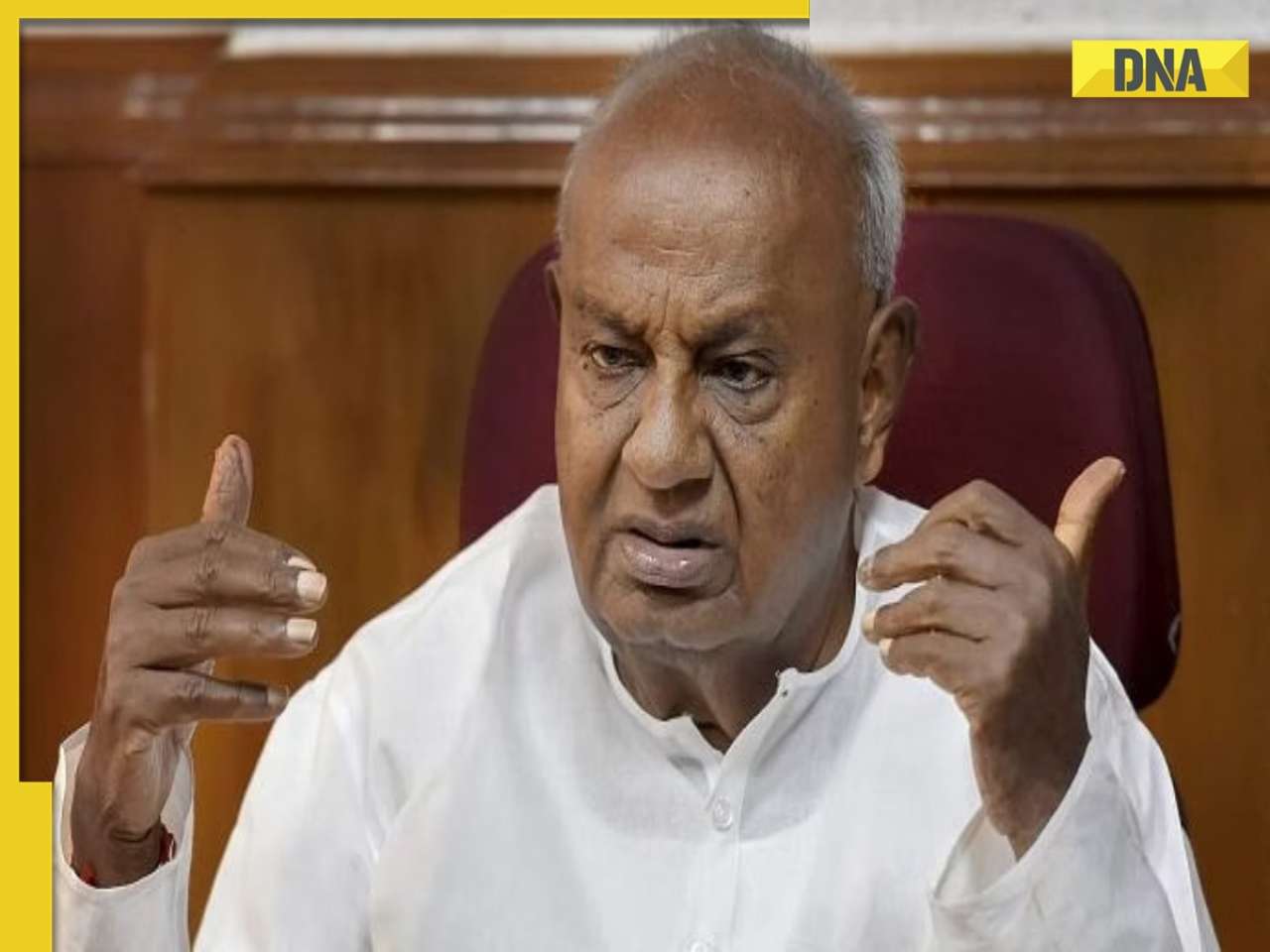The reduction across digital products, electronics, women's fashion, fast moving consumer goods (FMCG), sports and fitness goods, fashion jewellery, kitchen appliances, automotive accessories etc ranges 0.2% to 18%.
E-marketplace operator Snapdeal is changing its policies for its over 3 lakh online sellers in a bid to increase their participation on its platform and attract more sellers at the same time. The changes, effective July 14, include reduction in marketing fees by up to 18% for over 120 sub-categories, reduction in returns window, sharing the cost of returns.
The reduction across digital products, electronics, women's fashion, fast moving consumer goods (FMCG), sports and fitness goods, fashion jewellery, kitchen appliances, automotive accessories etc ranges 0.2% to 18%.
"Post this change," the company said in a statement, "Snapdeal will have the lowest marketing fee for around 300 sub-categories out of the total approximately 600 sub-categories across all leading marketplaces." It has also marginally increased marketing fee ranging from 0.5% to 5.5% for nearly 30 sub-categories.
Vishal Chadha, senior vice-president - market development, Snapdeal, said the reduction in marketing fees among other things will foster growth for our sellers. "We have worked closely with our sellers, and basis their feedback we have made these policy changes to make them in-line with e-commerce industry best practices. Reducing returns from the market by ensuring best in class logistics and technology advances is a key focus area for us.
Snapdeal has agreed to bear the cost for reverse pick-up and payment collection, while packaging and shipping will be borne by sellers. In case of replacement /exchange also, reverse pick up costs will be borne by Snapdeal.
"While we share costs with our sellers in case of return, we will continue to forego marketing fees to reduce the costs for sellers," said Chadha, adding that the policy changes will help the company build a fair, transparent and competitive marketplace.
Additionally, Snapdeal also unveiled a simpler framework of dos and don'ts for its sellers. "The self-serve platform helps sellers resolve their queries easily and together with the simplified policies, this is expected to enable the sellers to avoid the imposition of penalties due to ignorance or complexity," the company said.
Snapdeal's move comes at a time when the online seller community is in a tug-of-war with Flipkart. Sanjay Thakur, president, eSeller Suraksha (eSS), a body of over 1,500 online sellers from across the country, said, the biggest change is the removal of 'No question asked' policy and fixing seven days for returns, which will help to reduce irrational returns and frauds by buyers.
"The only negative point is charging shipping from sellers for RTOs (undelivered courier returns). However, the conditional returns will further squeeze the fraudulent buyers thus bringing down the returns ratio," said Thakur, adding that all in all it's a welcome move and will motivate sellers to increase their focus selling on the Snapdeal platform.
The fight between Flipkart and online sellers is certainly proving beneficial for competition. Last month Amazon.in took advantage of the market scenario and reduced commission rates (referral fees) charged to sellers for using its platform. The revised rates, Amazon.in, had said in a statement, can significantly help sellers to perform even better/ and succeed in their business. Amazon.in said that it started with 100 sellers three years ago and has crossed 1 lakh sellers during April-June quarter growing at 250% year on year and adding over 90,000 products daily.
With Flipkart not heeding to their concerns, online sellers have reduced their focus from selling on the portal while increasing efforts on Amazon.
While on the one hand Flipkart has been citing increase in the number of sellers on its platform from 90,000 to 93,000 post the policy change, the online sellers' fraternity, on the other hand, said Flipkart has been suspending / putting on hold sellers' accounts on its platform citing internal quality checks. "Sellers are being forced to open new account if they want to continue selling on Flipkart and that could possibly be the only reason for increase in the number of sellers on their platform," a seller said.
"Flipkart, it seems, only wants to work with a handful of third-party sellers who will function like WS Retail. This is being done to comply with the 25% and less sales volume limit criteria set by the government for e-marketplaces with foreign direct investment (FDI). These handful of sellers are likely to control a majority (90%) of the sales on Flipkart and the balance 90,000 sellers will fight for the 10% of the sales," said another seller.
![submenu-img]() This singer helped BCCI when it had no money to award 1983 World Cup-winning Indian cricket team, raised 20 lakh by...
This singer helped BCCI when it had no money to award 1983 World Cup-winning Indian cricket team, raised 20 lakh by...![submenu-img]() Virat Kohli’s new haircut ahead of RCB vs CSK IPL 2024 showdown sets internet on fire, see here
Virat Kohli’s new haircut ahead of RCB vs CSK IPL 2024 showdown sets internet on fire, see here![submenu-img]() BCCI bans Mumbai Indians skipper Hardik Pandya, slaps INR 30 lakh fine for....
BCCI bans Mumbai Indians skipper Hardik Pandya, slaps INR 30 lakh fine for....![submenu-img]() 'Justice must prevail': Former PM HD Deve Gowda breaks silence in Prajwal Revanna case
'Justice must prevail': Former PM HD Deve Gowda breaks silence in Prajwal Revanna case![submenu-img]() India urges students in Kyrgyzstan to stay indoors amid violent protests in Bishkek
India urges students in Kyrgyzstan to stay indoors amid violent protests in Bishkek![submenu-img]() Meet IIT graduates, three friends who were featured in Forbes 30 Under 30 Asia list, built AI startup, now…
Meet IIT graduates, three friends who were featured in Forbes 30 Under 30 Asia list, built AI startup, now…![submenu-img]() Meet woman who cracked UPSC in fourth attempt to become IAS officer, secured AIR...
Meet woman who cracked UPSC in fourth attempt to become IAS officer, secured AIR...![submenu-img]() Meet IIT JEE 2024 all-India girls topper who scored 100 percentile; her rank is…
Meet IIT JEE 2024 all-India girls topper who scored 100 percentile; her rank is…![submenu-img]() Meet PhD wife of IIT graduate hired at Rs 100 crore salary package, was fired within a year, he is now…
Meet PhD wife of IIT graduate hired at Rs 100 crore salary package, was fired within a year, he is now…![submenu-img]() Meet woman not from IIT, IIM or NIT, cracked UPSC exam in first attempt with AIR...
Meet woman not from IIT, IIM or NIT, cracked UPSC exam in first attempt with AIR...![submenu-img]() DNA Verified: Is CAA an anti-Muslim law? Centre terms news report as 'misleading'
DNA Verified: Is CAA an anti-Muslim law? Centre terms news report as 'misleading'![submenu-img]() DNA Verified: Lok Sabha Elections 2024 to be held on April 19? Know truth behind viral message
DNA Verified: Lok Sabha Elections 2024 to be held on April 19? Know truth behind viral message![submenu-img]() DNA Verified: Modi govt giving students free laptops under 'One Student One Laptop' scheme? Know truth here
DNA Verified: Modi govt giving students free laptops under 'One Student One Laptop' scheme? Know truth here![submenu-img]() DNA Verified: Shah Rukh Khan denies reports of his role in release of India's naval officers from Qatar
DNA Verified: Shah Rukh Khan denies reports of his role in release of India's naval officers from Qatar![submenu-img]() DNA Verified: Is govt providing Rs 1.6 lakh benefit to girls under PM Ladli Laxmi Yojana? Know truth
DNA Verified: Is govt providing Rs 1.6 lakh benefit to girls under PM Ladli Laxmi Yojana? Know truth![submenu-img]() Kiara Advani stuns in Prabal Gurung thigh-high slit gown for her Cannes debut, poses by the French Riviera
Kiara Advani stuns in Prabal Gurung thigh-high slit gown for her Cannes debut, poses by the French Riviera![submenu-img]() Heeramandi star Taha Shah Badussha makes dashing debut at Cannes Film Festival, fans call him ‘international crush’
Heeramandi star Taha Shah Badussha makes dashing debut at Cannes Film Festival, fans call him ‘international crush’![submenu-img]() Streaming This Week: Madgaon Express, Zara Hatke Zara Bachke, Bridgerton season 3, latest OTT releases to binge-watch
Streaming This Week: Madgaon Express, Zara Hatke Zara Bachke, Bridgerton season 3, latest OTT releases to binge-watch![submenu-img]() Sunanda Sharma exudes royalty as she debuts at Cannes Film Festival in anarkali, calls it ‘Punjabi community's victory’
Sunanda Sharma exudes royalty as she debuts at Cannes Film Festival in anarkali, calls it ‘Punjabi community's victory’![submenu-img]() Aishwarya Rai walks Cannes red carpet in bizarre gown made of confetti, fans say 'is this the Met Gala'
Aishwarya Rai walks Cannes red carpet in bizarre gown made of confetti, fans say 'is this the Met Gala'![submenu-img]() Haryana Political Crisis: Will 3 independent MLAs support withdrawal impact the present Nayab Saini led-BJP government?
Haryana Political Crisis: Will 3 independent MLAs support withdrawal impact the present Nayab Saini led-BJP government?![submenu-img]() DNA Explainer: Why Harvey Weinstein's rape conviction was overturned, will beleaguered Hollywood mogul get out of jail?
DNA Explainer: Why Harvey Weinstein's rape conviction was overturned, will beleaguered Hollywood mogul get out of jail?![submenu-img]() What is inheritance tax?
What is inheritance tax?![submenu-img]() DNA Explainer: What is cloud seeding which is blamed for wreaking havoc in Dubai?
DNA Explainer: What is cloud seeding which is blamed for wreaking havoc in Dubai?![submenu-img]() DNA Explainer: What is Israel's Arrow-3 defence system used to intercept Iran's missile attack?
DNA Explainer: What is Israel's Arrow-3 defence system used to intercept Iran's missile attack?![submenu-img]() This singer helped BCCI when it had no money to award 1983 World Cup-winning Indian cricket team, raised 20 lakh by...
This singer helped BCCI when it had no money to award 1983 World Cup-winning Indian cricket team, raised 20 lakh by...![submenu-img]() This film had 3 superstars, was unofficial remake of Hollywood classic, was box office flop, later became hit on...
This film had 3 superstars, was unofficial remake of Hollywood classic, was box office flop, later became hit on...![submenu-img]() Meet Nancy Tyagi, Indian influencer who wore self-stitched gown weighing over 20 kg to Cannes red carpet
Meet Nancy Tyagi, Indian influencer who wore self-stitched gown weighing over 20 kg to Cannes red carpet![submenu-img]() Telugu actor Chandrakanth found dead days after rumoured girlfriend Pavithra Jayaram's death in car accident
Telugu actor Chandrakanth found dead days after rumoured girlfriend Pavithra Jayaram's death in car accident![submenu-img]() Meet superstar who faced casting couch at young age, worked in B-grade films, was once highest-paid actress, now..
Meet superstar who faced casting couch at young age, worked in B-grade films, was once highest-paid actress, now..![submenu-img]() Viral video: Flood-rescued dog comforts stranded pooch with heartfelt hug, internet hearts it
Viral video: Flood-rescued dog comforts stranded pooch with heartfelt hug, internet hearts it![submenu-img]() Dubai ruler captured walking hand-in-hand with grandson in viral video, internet can't help but go aww
Dubai ruler captured walking hand-in-hand with grandson in viral video, internet can't help but go aww![submenu-img]() IPL 2024: Virat Kohli drops massive hint on MS Dhoni’s retirement plan ahead of RCB vs CSK clash
IPL 2024: Virat Kohli drops massive hint on MS Dhoni’s retirement plan ahead of RCB vs CSK clash![submenu-img]() Do you know which God Parsis worship? Find out here
Do you know which God Parsis worship? Find out here![submenu-img]() This white marble structure in Agra, competing with Taj Mahal, took 104 years to complete
This white marble structure in Agra, competing with Taj Mahal, took 104 years to complete








































)




)
)
)
)
)
)